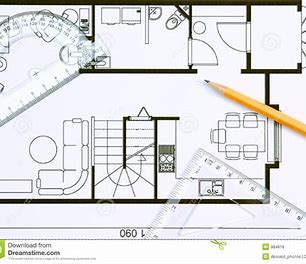Planning Powers & Process
What powers does Awbridge Parish Council
have with respect to planning applications?
Awbridge Parish Council is consulted by the relevant Planning Authority (usually
Test Valley Borough Council) on all planning applications. Any views expressed
by the Parish Council will be considered by the Planning Authority before a decision
is made, providing the points made are relevant to the determination of a
planning application.
The final decision on planning applications is made by the Planning Authority,
not the Parish Council.
Awbridge Parish Council will only comment on what are known as
“material considerations”. Other issues, for example, boundary disputes
between neighbours, or loss of views, will not be considered.
Parish Councils are not Planning Authorities. Whilst they are statutory
consultees in the planning process, they have no powers to approve or
reject planning applications. Parish Councils can only comment on
planning applications in much the same way that individual members of the
public can comment.
The length of time taken to determine a planning application is governed by
the local planning authority within its own statutory timeline for decision making.
A Parish Council can request that it be given extra time to comment on an application.
The decision whether this is granted rests solely with the planning authority.
How do parish councils comment
on planning applications?
Parish councils can only agree to comment on planning applications in properly
convened council or committee meetings which the public can attend. The comments
agreed in the council meeting are submitted in writing by the parish clerk to the relevant
planning authority. The process is the same as that for an individual wishing to comment
on a planning application.
Relevant reasons for commenting
on a Planning Application
Comments that are clear, concise, and accurate stand more chance of being accepted
than those that are not. When planning applications are considered, the matters listed
below can all be relevant. These are sometimes referred to as ‘material planning
considerations’:
Central government policy and guidance - Acts, Circulars,
Planning Policy Guidance Notes (PPGs) etc.
The Development Plan and any review of the Development Plan which is underway.
Adopted supplementary guidance, for example, village design statements,
conservation area appraisals.
Car parking standards.
Replies from statutory and non-statutory agencies,
for example, Environment Agency, Highways Authority.
Representations from others, including neighbours, amenity groups,
and other interested parties, if they relate to land use matters.
Effects on an area, this includes the character of an area, availability of
infrastructure, density, over-development, layout, position, design, and
external appearance of buildings and landscaping.
The need to safeguard valuable resources such as farmland or mineral
reserves.
Highway safety issues - such as traffic generation, road capacity, means
of access, visibility, car parking provision and effects on pedestrians and cyclists.
Public services, such as drainage and water supply.
Public proposals for using the same land.
Effects on individual buildings, such as overlooking, loss of light,
overshadowing, visual intrusion.
Noise, disturbance, and smell.
Effects on a specially designated area or building, such as green belt,
conservation areas, listed buildings, ancient monuments, and areas of
special scientific interest.
Effects on existing tree cover and hedgerows.
Nature conservation interests, such as protection of protected species.
Public rights of way.
Flooding or pollution.
Planning history of the site, including existing permissions and appeal decisions.
A desire to retain or promote certain uses, such as playing fields, village shops
and pubs.
Need for the development, such as a petrol station.
Prevention of crime and disorder.
Presence of a hazardous substance directly associated with a development.
Precedent, but only where it can be shown there would be a real danger that a
proposal would inevitably lead to other inappropriate development, for example,
isolated housing in the countryside.
Invalid reasons for objecting to a planning application
There are certain matters which do not amount to ‘material planning considerations’ under
current legislation and guidance. These matters cannot be considered and should not be included
in objections as they weaken your case:
Speculation over future use.
The identity of the applicant or occupant.
Unfair competition.
Boundary disputes.
Breach of covenants and personal property rights,
including personal (not Public) rights of way.
Loss of a private view.
Devaluation of property.
Other financial matters.
Matters controlled by other legislation, such as internal space standards for
dwellings, or fire prevention.
Religious or moral issues.
The fact that the applicant does not own the land to which the application relates .
The fact that an objector is a tenant of land where the development is proposed.
The fact that the development has already been carried out and the applicant is seeking
to regularise the situation. People can carry out development at their own risk before
getting planning permission.
The developer’s motives, record, or reputation
Concerns and Issues
The person making a planning application must provide enough information for the application
to be determined. They do not have to provide every single detail before an application can be
approved because certain matters can be resolved by way of conditions included as part of any
permission granted.
Because of this, certain concerns and issues may not be considered as ‘objections’, but it is
entirely reasonable to raise these points and to ask to be kept informed before the applications
is finally granted permission.
These include:
- The proposed type and colour of the materials to be used.
- The exact nature of any proposed planting or boundary treatment.
